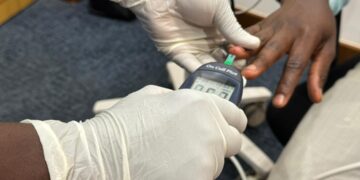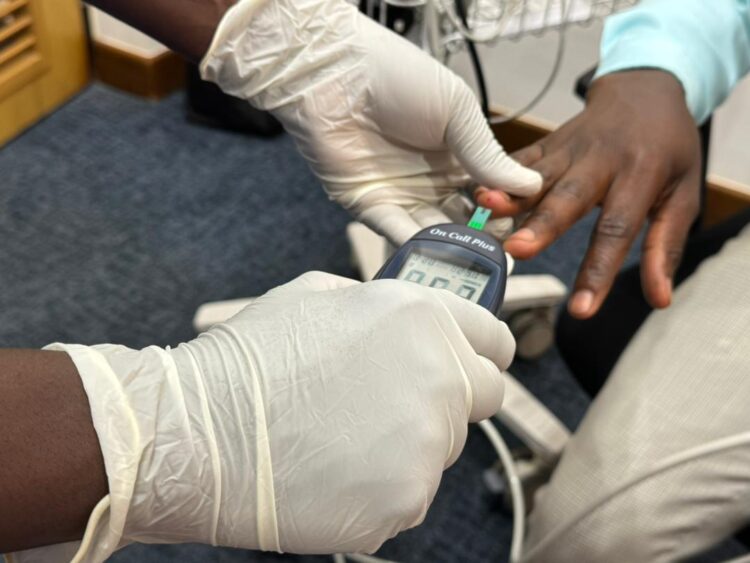By Leonard Kamugisha Akida,
KAMPALA
Health experts at the Aga Khan University Hospital in Kampala have called for urgent lifestyle adjustments among Ugandans to curb the rising cases of diabetes and reduce the growing medical costs spent abroad.
The call was made during a health awareness engagement with the media ahead of the World Diabetes Day commemoration, observed globally every November 14. This year’s theme, “Diabetes and the Workplace,” underscores the need for greater awareness and support for employees managing the condition while maintaining productivity.

Speaking during the engagement, Diana Ssewanyana, the Senior Manager of Business Development and Operations at the hospital, said many lifestyle diseases, including diabetes, can be prevented through simple daily habits.
She urged Ugandans to adopt healthier routines such as regular exercises like walking, wearing fitting shoes, maintaining proper sleeping patterns, and embracing traditional foods instead of oily and processed diets.
“We must change our perception of food and health. Eating indigenous foods does not mean being poor. Lifestyle change is key in cutting the high costs of medical treatment abroad,” Ssewanyana said.
She emphasized that diabetes and other non-communicable diseases are draining the country’s finances, with millions spent on treatment in foreign hospitals.
“It’s a vicious cycle. We are taking money to India instead of investing in infrastructure here. Hospitals should not be money-making ventures because health is a fundamental right,” she added, noting that Aga Khan Hospital operates as a not-for-profit institution to improve access to healthcare.
According to the International Diabetes Federation (IDF), seven in every ten people living with diabetes are of working age. The Federation further notes that three in ten people with diabetes have experienced anxiety, depression, or other mental health conditions linked to their diagnosis, while four in five suffer from diabetes burnout.

Experts warn that diabetes can affect individuals across all life stages, from childhood and the reproductive years to old age. They emphasize that early testing, dietary discipline, and mental health support are critical in preventing severe complications.
Uganda’s Ministry of Health has in recent years stepped up community sensitization campaigns under its Non-Communicable Diseases (NCDs) program to promote regular health checks and reduce lifestyle-related diseases.
Additionally, Ssewanyana also appealed to journalists to use their platforms to promote disease prevention rather than sensationalism.
“Journalists are shaping the world, it’s not MPs. If you push the agenda of healthy living, your message will be heard. The power is with you,” she told media practitioners.
Meanwhile, Dr. Fressera Bunjo Muyinga, a medical doctor at Aga Khan University Hospital, revealed that diabetes is becoming increasingly common, affecting about 40% of Ugandans either directly or through early symptoms.
“Five in every fifteen people show diabetic signs. Those above 40 years, smokers, and alcohol consumers are at higher risk,” she noted.

Dr. Muyinga highlighted Type 1, Type 2, and Gestational Diabetes as the most prevalent forms in Uganda and urged early screening to enable timely diagnosis and treatment.
“Diabetes is a chronic condition. Adhering to medication and regular check-ups is crucial. Late action delays diagnosis,” she cautioned.
In his remarks, Alex Mark Ssimbwa, who represented Dr. Joseph Mwizerwa, the university’s Associate Vice Provost, announced that Aga Khan University Hospital will soon expand its services.
“The hospital will open in-patient health services upon completion of the new hospital block. The facility, with a planned capacity of over 150 beds, will provide affordable care and uphold Aga Khan’s legacy as a centre of excellence in health and education,” Ssimbwa said.








































